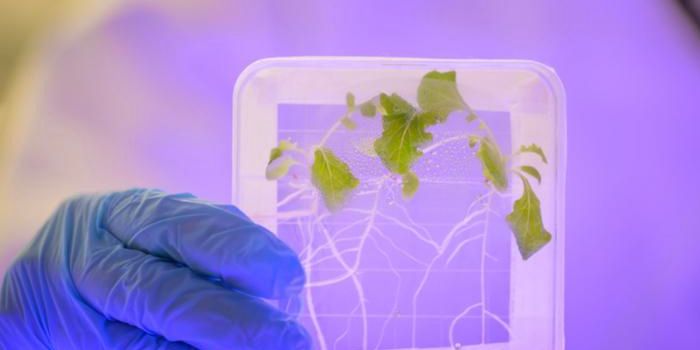How Our Microbiomes Remain Stable or Change w Health & Illness
The trillions of microbial species in our gastrointestinal tract, known as the gut microbiome, has a powerful impact on our bodies. We also have other microbiomes, like the ones on our skin and in our moths and noses. New research has emphasized just how personal these microbial communities can become. Reporting in Cell Host & Microbe, researchers analyzed the skin, mouth, nose, and gut microbiomes of 86 people over a period of six years. This work showed that the microbial species that tended to persist in an individual's microbiomes were those that were most unique to that individual, and not those found in most of the population. It also revealed many new insights.
We know that the microbiome is closely linked to human health. But defining the characteristics of a healthy microbiome has been extremely challenging, because there is so much diversity when the microbiome of one person is compared to another's. Scientists are beginning to understand more about how gut microbes influence health and disease, and vice versa.
The report has revealed some interesting new correlations. For example, type 2 diabetes patients tended to have less stable microbiomes, meaning their compositions were not as consistent as other people's microbiomes. The researches suggested that in diabetics, insulin resistance and the availability of certain metabolites is altered, which affects the growth of their gut bacteria.
In this work, samples of the various microbiomes were taken from each participant on a quarterly basis, along with detailed information about their health or antibiotics they were taking. Additional samples were obtained when study volunteers got a vaccination, an antibiotic, or a respiratory illness. Genetic sequencing tools revealed the bacterial species in each sample. In all, 5,432 samples were analyzed. The researchers were able to look at a complete picture of the participants' total microbiome, how it changed, and when.
Healthy people often tended to carry certain bacteria, and when they got sick, there was a major shift in their microbiomes. The microbiome was also remarkably stable when people were healthy, and rarely underwent major changes.
"We found that when you get sick with something like a cold, you have this temporary change in the microbiome; it becomes very dysregulated," said first study author Xin Zhou, PhD, a postdoctoral scholar. "With diabetes, that signature is the same in many ways except that it is long-term rather than temporary."
Bacterial species that were most specific to a person also tended to be the most stable. "A lot of people would suspect that the bacteria shared among us would be the most important and thus the most stable," said senior study author Professor Michael Snyder, PhD, director of the Stanford Center for Genomics and Personalized Medicine. "We found the complete opposite—the personal microbiome is the most stable. It further suggests that our personal microbiome, different from everyone else's personal microbiome, is pretty integral to our health. This makes sense because all have different healthy baselines."
Snyder noted that our DNA, diet, and immune systems are all affecting our microbiomes, and this research has highlighted how personal these microbiomes are.
There were also significant links between the different microbiomes of one person. When one microbiome changed, the others did too. So if an infection affects the nasal microbiome, then the mouth, skin, and gut microbes also change. While more research will be needed to understand this phenomenon, the investigators suspect that the immune system is connecting these microbial communities.
The team also added that this study seems to suggest that there is no perfect microbiome that everyone should be striving to build and maintain.
"Instead, we're moving toward this idea that we have a personal microbiome that is incredibly important for our own metabolic and immune health. Our metabolic and immune health also greatly affect our microbiome—it is all tied together. The microbiome varies enormously between people," Snyder said. "How you feed it and what it's exposed to probably makes a big impact on your health, and we still have to work that out in many ways."
This research is part of an effort the National Institute of Health called the Integrative Human Microbiome Project.
Sources: Stanford University, Cell Host & Microbe


















































